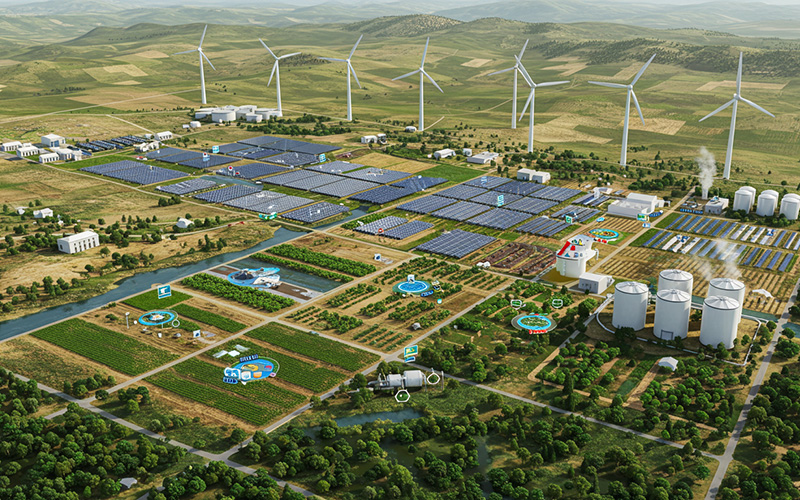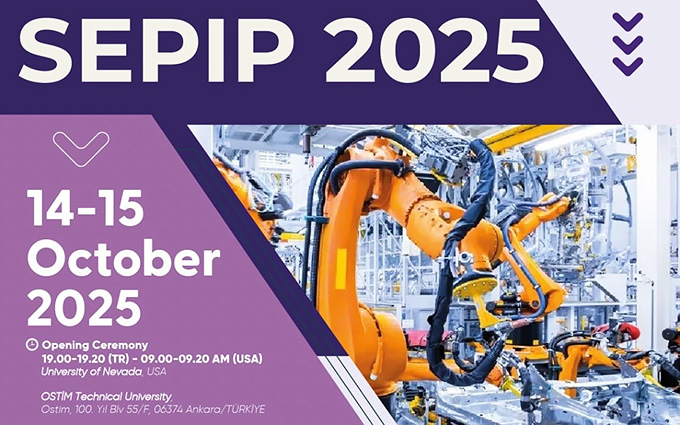
A Strategic Partnership for Europe’s Food, Water, and Energy Future
Europe is facing growing challenges in food, water, and energy security, and Anatolia holds the key to addressing them. This study explores how Türkiye’s vast agricultural resources, advanced water management potential, and renewable energy capabilities can strengthen Europe’s resilience. By applying advanced scientific methods—including agro-ecological modeling, renewable energy assessments, and risk analysis—this research makes the case for a stronger EU-Türkiye partnership. The goal is not just cooperation but a transformative shift in how both regions manage resources, innovate together, and secure a sustainable future.
Yet every passing day without action is a lost opportunity. As the world moves faster than ever, delays in forging this strategic alliance will only deepen Europe’s vulnerabilities, making it harder to adapt to rapidly changing global conditions.
Why Europe Needs Anatolia—Now More Than Ever
Europe’s food supply is vulnerable to market fluctuations, inefficient agricultural practices, and environmental stress. At the same time, its dependence on fossil fuels and fragmented energy infrastructure makes it susceptible to shortages and price spikes. Water scarcity is an increasing threat to European agriculture, industries, and daily life, requiring immediate and innovative solutions. Türkiye, with its fertile lands, abundant renewable energy sources, and potential for advanced water management, offers a natural solution—but only if both sides commit to a strategic, science-driven approach before it’s too late.
The longer Europe hesitates, the greater the risks become. In an era where global crises unfold overnight, from supply chain disruptions to energy shortages, the cost of inaction is compounding daily. The EU cannot afford to wait while other regions rapidly adapt and secure their long-term food, water, and energy resilience.
Anatolia’s Agricultural Strength: A Climate Advantage for Europe’s Food Security
Türkiye’s four-season climate makes Anatolia one of the most diverse agricultural regions in the world. With its unique geographical position bridging Europe and Asia, the region offers ideal conditions for growing a wide variety of fruits, vegetables, and staple crops throughout the year. From Mediterranean citrus fruits to Central Anatolian wheat, from Aegean olives to Black Sea hazelnuts, the diversity of production makes Türkiye a natural solution to Europe’s increasing food security concerns.
However, unlocking this full potential requires modernization. Precision agriculture—using AI-driven analytics, remote sensing, and hyperspectral imaging—can help farmers optimize yields and reduce waste. Climate-resilient crops, advanced irrigation techniques, and improved land-use planning will ensure long-term sustainability.
Water Security: A Critical Factor for Sustainable Growth
Water is at the heart of sustainable agriculture and economic resilience. Türkiye is in a strategic position to lead Europe in water efficiency with investments in cutting-edge technologies. The adoption of advanced irrigation methods—such as precision drip systems, hydroponic farming, and AI-driven water distribution networks—can significantly reduce water waste and improve agricultural efficiency.
In addition, Türkiye’s potential in desalination technology and wastewater recycling offers a long-term solution to regional water shortages. Large-scale investments in these areas will not only benefit Türkiye but also provide Europe with a reliable partner for securing its agricultural and industrial water needs. However, these solutions require immediate investment. If action is delayed, both Türkiye and Europe will face increasing stress from climate-driven water shortages.
A Renewable Energy Powerhouse—If Europe Moves Fast Enough
Anatolia’s vast solar, wind, and geothermal energy resources could help diversify Europe’s energy mix and reduce dependence on fossil fuels. With high-resolution mapping and computational modeling, Türkiye can optimize its clean energy production and transmission to Europe. Investing in energy storage solutions, smart grids, and next-generation technologies will ensure this transition is efficient and scalable.
However, energy markets are shifting rapidly. Other regions are aggressively investing in renewables, securing long-term supply contracts, and adapting their energy policies. If Europe does not accelerate its collaboration with Türkiye, it risks falling behind in the race for energy security and sustainability. Every day that Türkiye’s renewable potential remains underutilized is a day that Europe remains exposed to unnecessary risks and missed opportunities.
Building a Resilient Future Together—Before It’s Too Late
Europe’s dependence on external food, water, and energy sources creates significant risks. By analyzing supply chain vulnerabilities and energy disruptions through advanced scenario modeling, this study underscores the urgency of a stronger EU-Türkiye partnership. Diversifying supply routes and aligning regulations will make both regions more resilient to global shocks.
But resilience requires foresight, and foresight requires timely action. The world is changing at an unprecedented pace—waiting for the “perfect moment” to act is no longer a viable strategy. The EU must recognize that delaying Türkiye’s integration into its economic and strategic framework is a decision with lasting consequences.
A Roadmap for Immediate Collaboration
To make this vision a reality, Türkiye and the EU must deepen their collaboration in research, technology, and policy—without further hesitation.
- Food Security & Agricultural Innovation: Joint R&D initiatives in precision agriculture, climate-smart farming, and resilient food supply chains.
- Water Management & Sustainability: Large-scale investment in water recycling, desalination, and AI-driven irrigation systems to ensure long-term water security.
- Energy Independence & Green Technology: Co-investment in renewable energy projects, smart grids, and advanced storage solutions.
- Infrastructure Development: Modernization of transportation and distribution networks to streamline supply chains and reduce bottlenecks.
- Regulatory Alignment & Policy Coordination: Standardizing agricultural, water, and energy policies to facilitate seamless trade and investment.
Long-term stability requires structured engagement, and the time for discussions without action has passed. Türkiye’s role in European food, water, and energy security is too important to be left to market forces alone. There needs to be a coordinated, strategic effort, starting immediately, to build lasting economic and security ties.
A Call for Urgent Action
Türkiye’s potential to support Europe’s food, water, and energy security is enormous, but every delay in realizing this potential is a loss for Europe’s sustainable future. The global landscape is shifting at a speed never seen before, and hesitation is no longer an option.
This is not just about economic opportunity; it’s about securing Europe’s place in a rapidly evolving world. By embracing data-driven decision-making, technological innovation, and strategic planning today—not tomorrow—the EU and Türkiye can forge a partnership that ensures stability, prosperity, and resilience for future generations.
Together We Triumph: Connections lead to opportunities





